Find Help
More Items From Ergsy search
-

Cervical screening: Q&A | NHS
Relevance: 100%
-
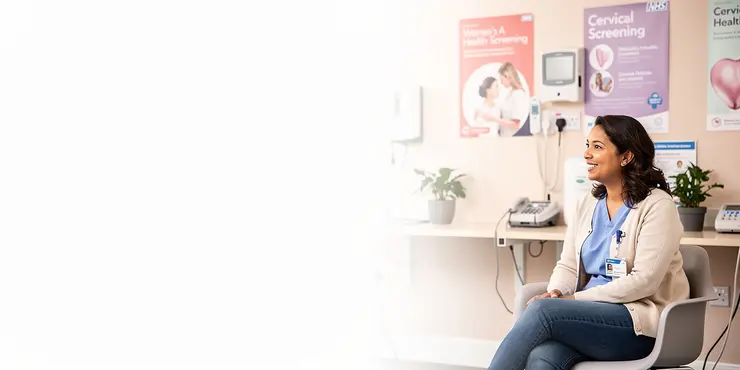
The NHS is #StillHereToHelp with cervical screening
Relevance: 96%
-
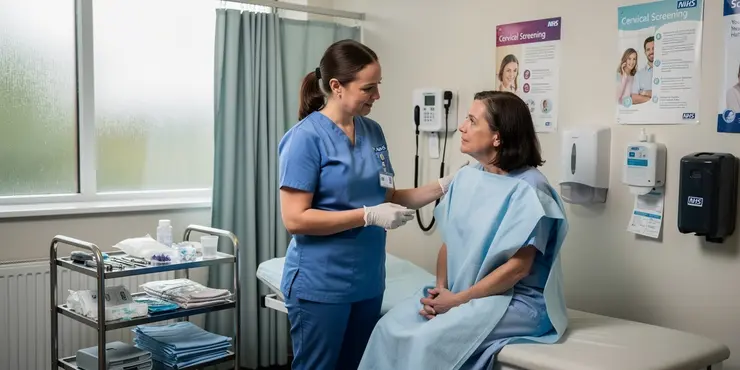
What is cervical screening (smear test)?
Relevance: 93%
-
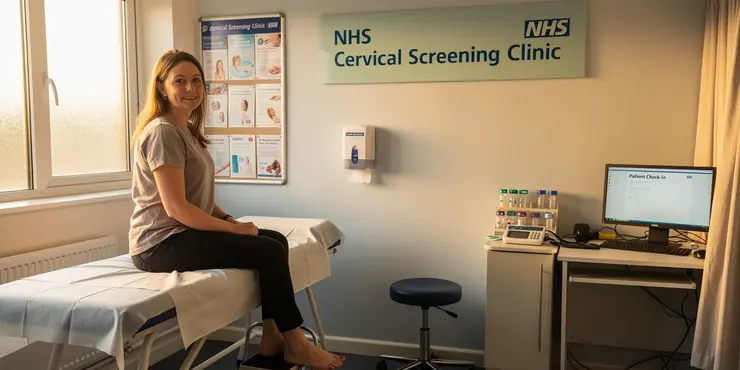
Cervical screening: what to expect | NHS
Relevance: 92%
-
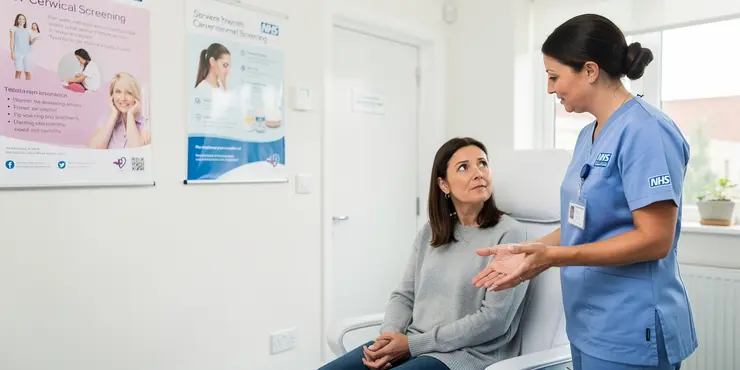
Cervical screening: how it's done | NHS
Relevance: 92%
-
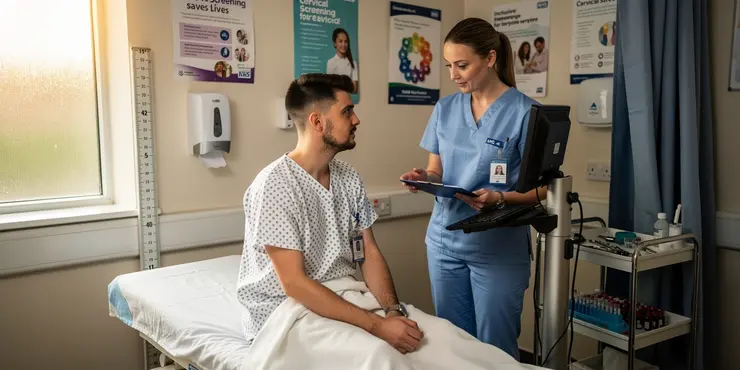
Cervical screening for transgender men | NHS
Relevance: 92%
-
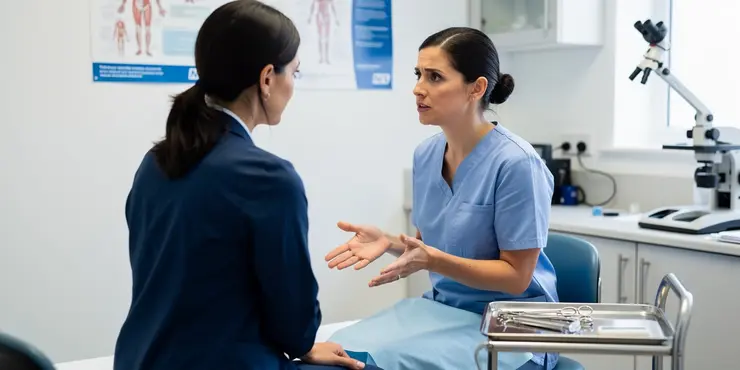
Cervical screening: what to expect | NHS
Relevance: 91%
-
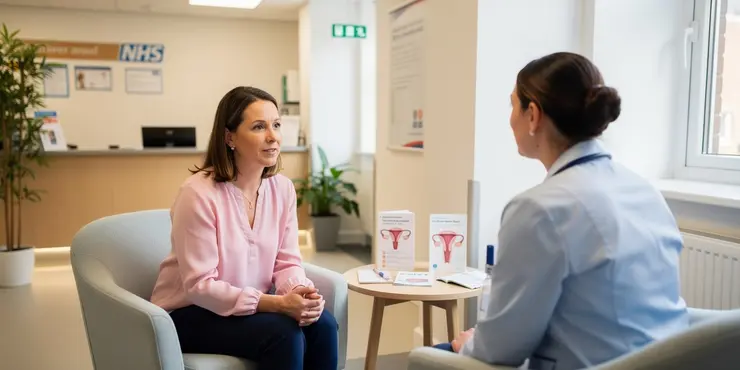
NHSGGC - Cervical Cancer Screening - English
Relevance: 91%
-
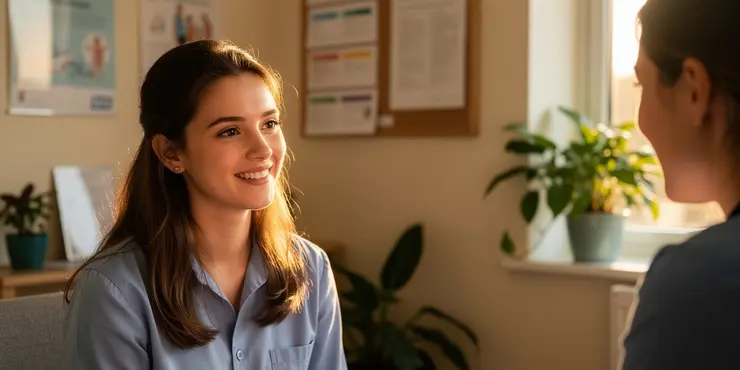
When should cervical cancer screening begin?
Relevance: 89%
-
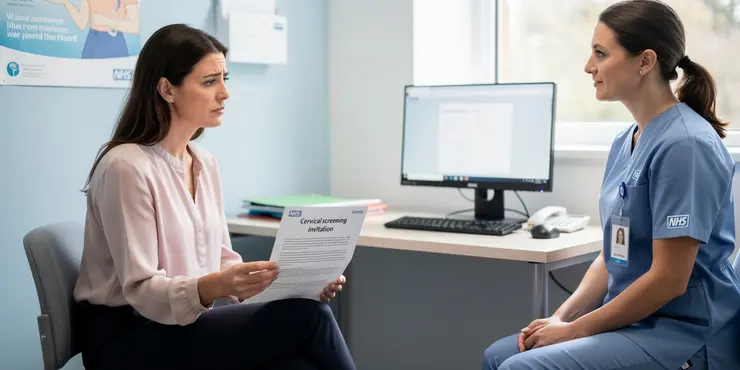
Don’t ignore your cervical screening invite | NHS
Relevance: 86%
-
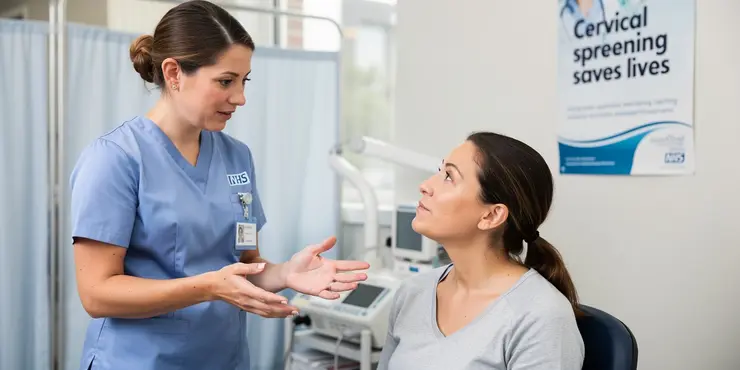
Cervical screening (smear test) – what’s it all about?
Relevance: 86%
-
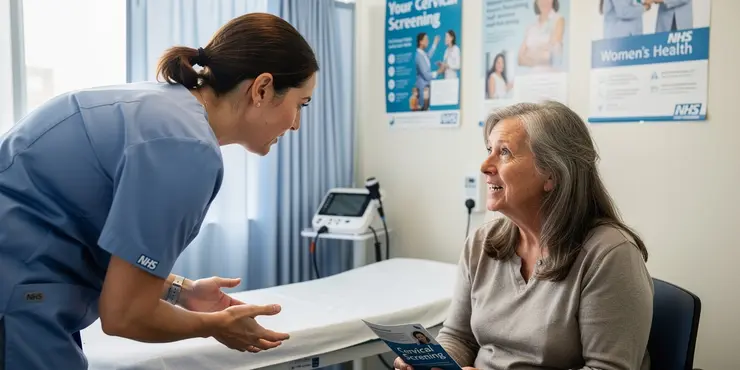
Accessing cervical screening with the right support for people with a learning disability
Relevance: 82%
-

Cervical screening for women who have experienced sexual assault | NHS
Relevance: 81%
-
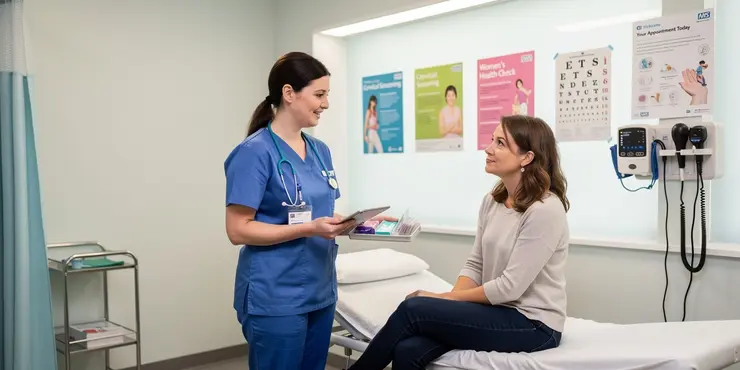
Booked in for your smear test (cervical screening) and not sure what to expect?
Relevance: 78%
-
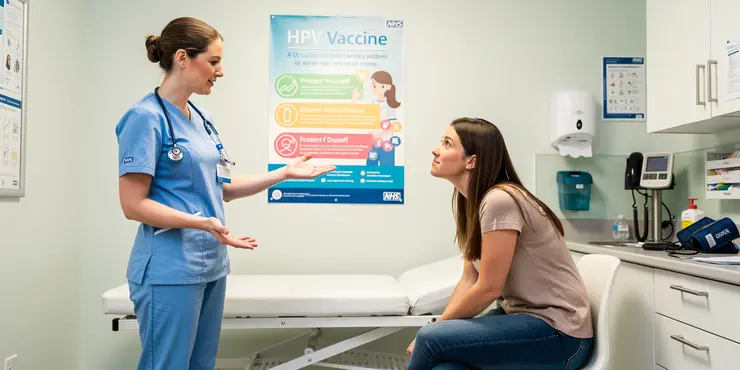
What is the link between HPV and cervical cancer?
Relevance: 70%
-
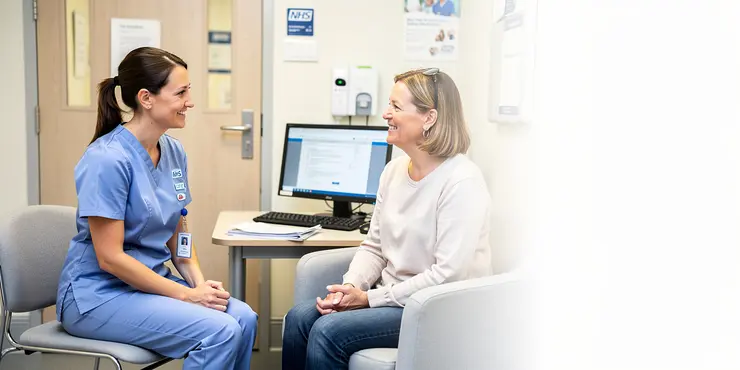
Health Screenings You Should Know About
Relevance: 59%
-
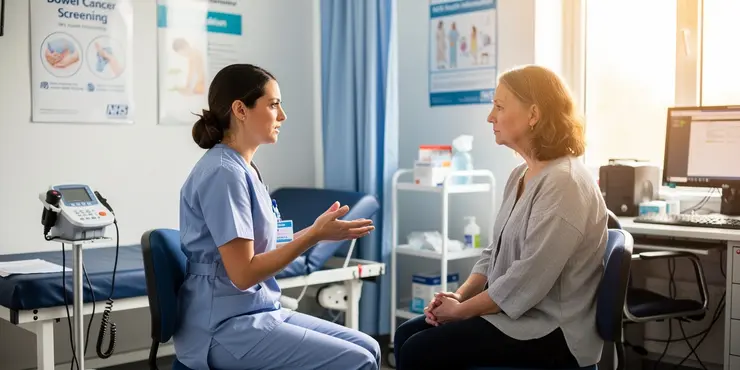
What kinds of cancer screening are available?
Relevance: 58%
-
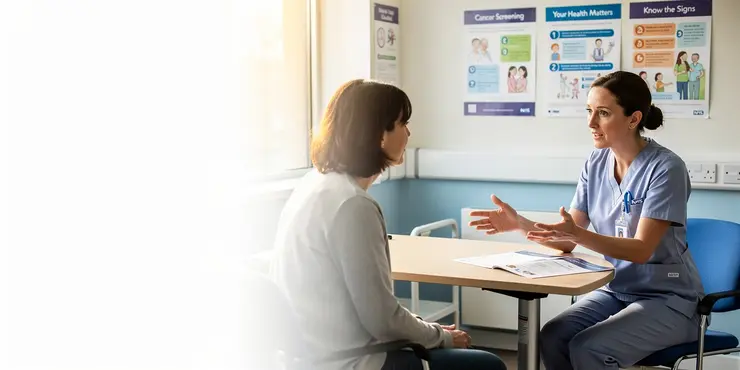
What is cancer screening?
Relevance: 55%
-
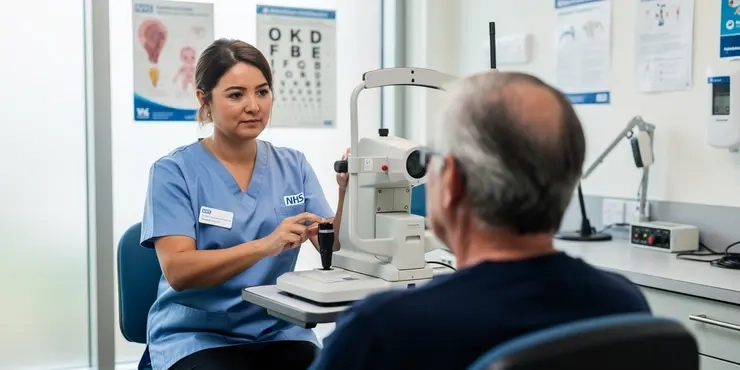
Derbyshire Diabetic Eye Screening - Diabetic Eye Screening
Relevance: 40%
-
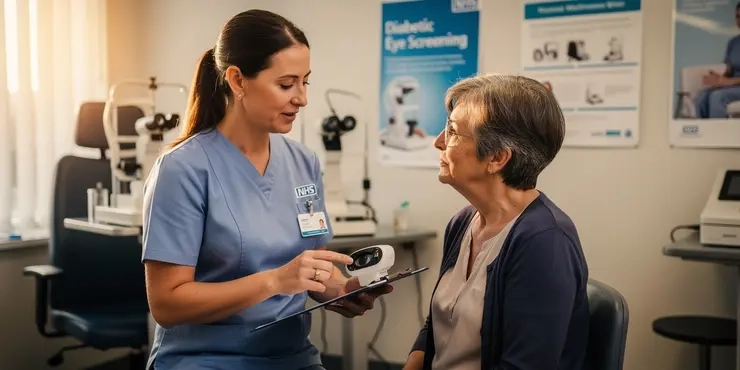
Derbyshire Diabetic Eye Screening - Your Screening Appointment
Relevance: 40%
-
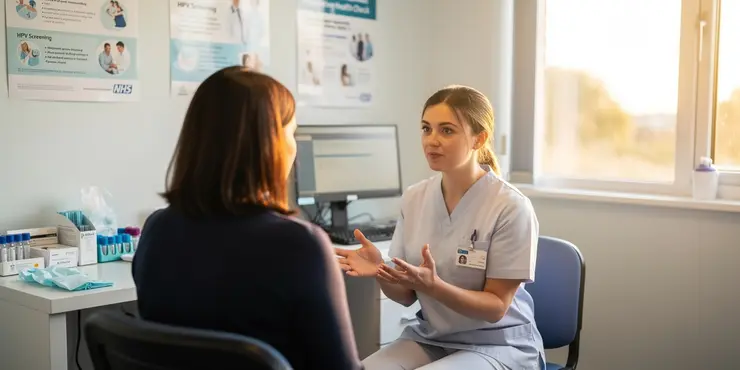
Is HPV testing available?
Relevance: 39%
-
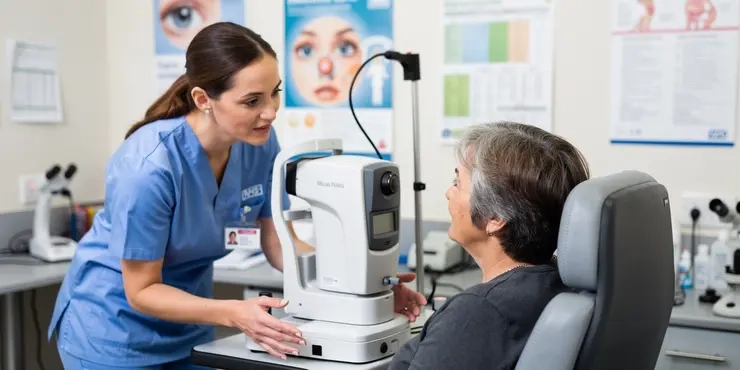
Diabetes Eye Screening
Relevance: 39%
-
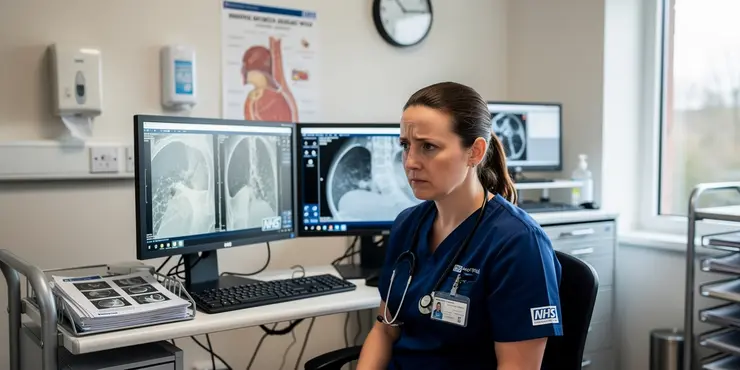
AI Breast Cancer Screening in the UK
Relevance: 39%
-
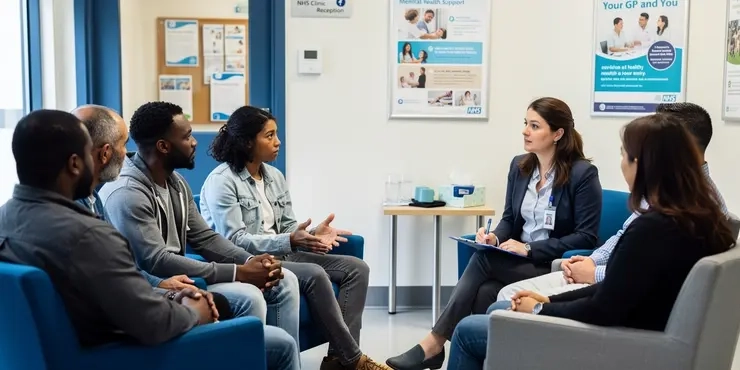
The asylum screening interview
Relevance: 38%
-
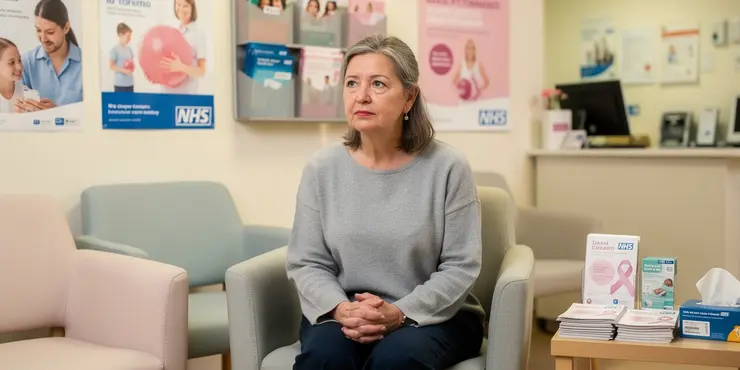
NHS breast cancer screening
Relevance: 37%
-

Are there eco-friendly mosquito screen options?
Relevance: 37%
-

Are mosquito window screens effective in the UK?
Relevance: 37%
-
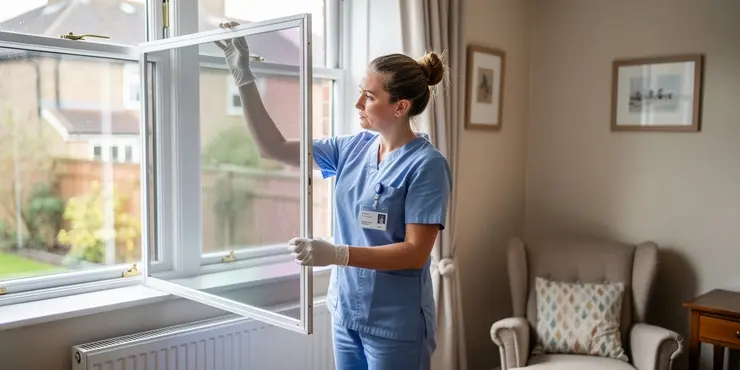
Are Mosquito window screens effective?
Relevance: 37%
-

Are there retractable mosquito screens available?
Relevance: 37%
-
Is screening painful or risky for my child?
Relevance: 37%
-
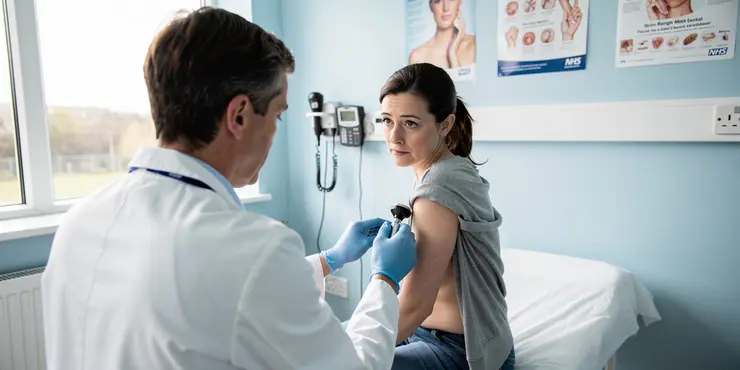
What is a skin cancer screening?
Relevance: 37%
-

How do I maintain my mosquito screens?
Relevance: 37%
-
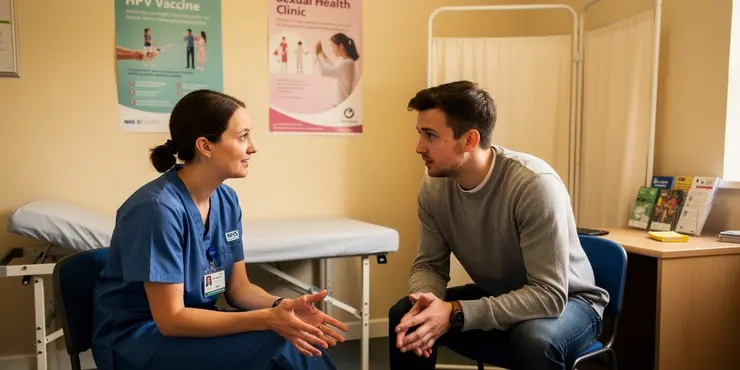
Can HPV lead to cancer?
Relevance: 36%
-

Can pets damage mosquito screens?
Relevance: 36%
-

Do mosquito screens add value to my home?
Relevance: 36%
-
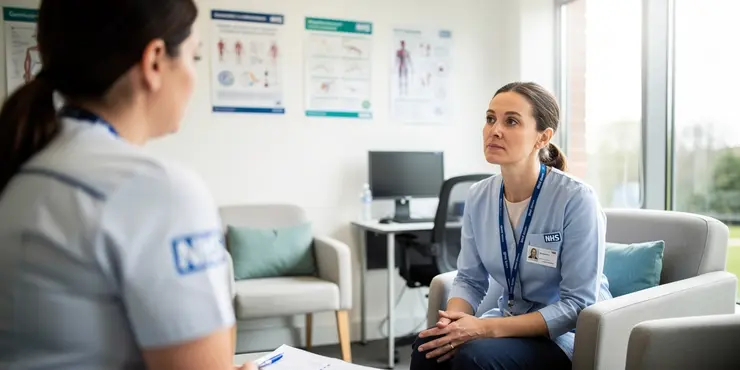
Is genetic screening available for cancer risk?
Relevance: 36%
-
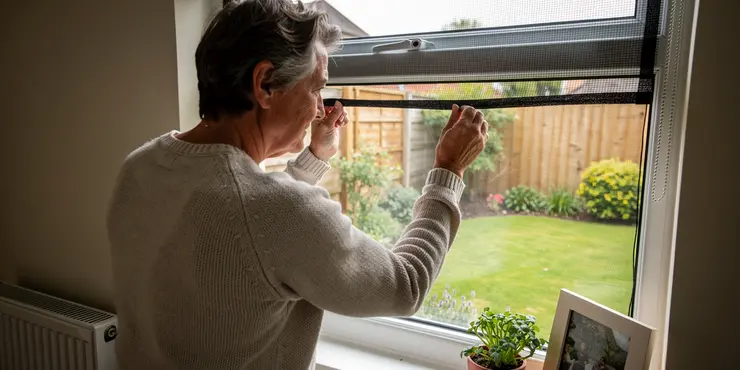
Are mosquito screens effective against midges?
Relevance: 36%
-
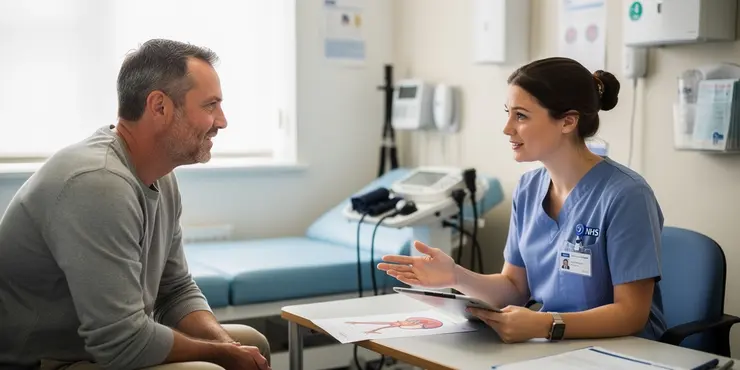
AAA (Abdominal aortic aneurysm) screening
Relevance: 36%
-
What are the limitations of type 1 diabetes screening?
Relevance: 36%
-
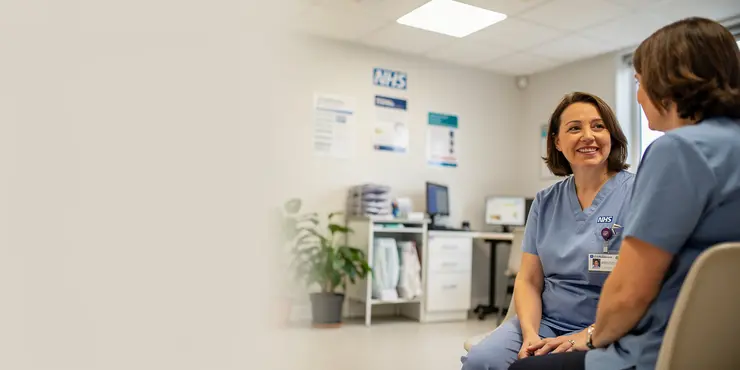
Do mosquito screens provide insulation benefits?
Relevance: 36%
Cervical Screening: What to Expect | NHS
Understanding Cervical Screening
Cervical screening, also known as a smear test, is a method used by the NHS to detect abnormal cells on the cervix's surface that could potentially turn into cervical cancer. While it's not a test for cancer, detecting and treating abnormal cell changes can prevent cervical cancer from developing.Who is Eligible for Cervical Screening?
In the United Kingdom, cervical screening is offered to women and people with a cervix aged 25 to 64. The NHS sends screening invitations: - Every 3 years for those aged 25 to 49 - Every 5 years for those aged 50 to 64Preparing for Your Appointment
When you receive your invitation, book an appointment with your GP or local sexual health clinic. To ensure clearer results, aim to schedule your test when you're not on your period. It's advisable to wear comfortable clothing and refrain from using vaginal medications, creams, or douches 24 hours before the test.What Happens During Cervical Screening?
Upon arrival, you'll be asked to undress from your waist down and lie on an examination table. The healthcare professional will gently insert a speculum into your vagina to hold it open. A soft brush is then used to collect cells from your cervix. The process only takes a few minutes and might feel a bit uncomfortable but shouldn't be painful.After the Screening
You might experience slight spotting or discomfort after the test, but this should subside quickly. The sample will be sent to a lab for analysis, and you'll receive results by mail within 2 weeks. If abnormal cells are found, further investigation and treatment will be required. Most cases of abnormal cells do not develop into cancer, but follow-up is crucial.Importance of Regular Screening
Regular cervical screening is vital for early detection of changes to cervical cells, significantly reducing the risk of developing cervical cancer. Therefore, it’s essential to attend all scheduled screenings even if you feel healthy and have no symptoms.Addressing Concerns and Stigma
It’s normal to feel anxious about cervical screening, but understanding its importance can help ease concerns. If you have any worries or require more information, you can speak to your GP, practice nurse, or contact organizations like Jo's Cervical Cancer Trust.Conclusion
Cervical screening is a straightforward, essential procedure that plays a critical role in preventing cervical cancer. Keeping up with your screenings can save your life, so make sure you attend all your appointments and reach out to healthcare providers if you have any questions.Cervical Screening: What to Expect | NHS
Understanding Cervical Screening
Cervical screening is also called a smear test. It helps find unusual cells on the cervix. These cells could become cancer if not treated. The test finds these changes early. It is not a cancer test, but it helps stop cancer from growing later.Who is Eligible for Cervical Screening?
In the UK, cervical screening is for women and people with a cervix aged 25 to 64. The NHS sends a letter to remind you when to go: - Every 3 years if you are 25 to 49 years old - Every 5 years if you are 50 to 64 years oldPreparing for Your Appointment
When you get your letter, make an appointment with your GP or local clinic. Try not to book your test during your period. Wear comfy clothes and don't use any creams or washes inside your vagina for 24 hours before the test.What Happens During Cervical Screening?
At the appointment, you need to take off your clothes from the waist down. Lie on a table. The nurse or doctor will use a tool called a speculum. This helps them see inside. A soft brush takes cells from your cervix. It takes just a few minutes. It might feel a little uncomfortable, but it should not hurt.After the Screening
You might feel a bit sore or have a little bleeding after the test. This will stop soon. Your cells go to a lab to be checked. You will get a letter with the results in 2 weeks. If there are unusual cells, you might need more tests. Most unusual cells do not turn into cancer, but more check-ups are important.Importance of Regular Screening
Regular cervical screening is important. It helps find cell changes before they become cancer. Going to all your screenings lowers the risk of cancer, even if you feel well and have no signs of illness.Addressing Concerns and Stigma
It is normal to feel worried about cervical screening. Knowing why it is important can help you feel better. If you are concerned, talk to your GP or nurse. You can also contact groups like Jo's Cervical Cancer Trust for help.Conclusion
Cervical screening is simple and important. It helps stop cervical cancer. Always go to your appointments and ask your healthcare provider if you have questions. Keeping up with your tests can protect your health.Frequently Asked Questions
What is cervical screening?
Cervical screening is a procedure to detect abnormal cells on the cervix which could potentially develop into cervical cancer. It is not a test for cancer itself.
Who should have cervical screening?
Cervical screening is recommended for women and people with a cervix aged 25 to 64. In the UK, invitations are sent out automatically.
How often should I have cervical screening?
In England, you should have a cervical screening every 3 years if you're aged 25 to 49, and every 5 years if you're aged 50 to 64.
What happens during a cervical screening?
During cervical screening, a small brush-like instrument is used to collect a sample of cells from your cervix. The process usually takes around 5 minutes.
Does cervical screening hurt?
Cervical screening can be a bit uncomfortable but should not be painful. Some people might feel slight discomfort or a bit of pressure during the procedure.
How should I prepare for cervical screening?
You do not need to do much to prepare. It is recommended to avoid scheduling the test during your period, if possible, and you should inform your nurse or doctor if you have any particular concerns or conditions.
Can I still have cervical screening if I am pregnant?
It is generally recommended to postpone cervical screening until 12 weeks after the birth of your baby. If there is an urgent need for screening, consult with your healthcare provider.
How long does it take to receive cervical screening results?
You should receive your cervical screening results by letter within 2 weeks. If you do not receive your results, contact your GP surgery.
What does it mean if my cervical screening results are abnormal?
If your results show abnormal changes, it means that some cell changes in your cervix were found. This does not mean you have cancer, but you may need further testing or treatment to prevent cells from becoming cancerous.
What can I do if I am anxious about cervical screening?
If you are feeling anxious, talk to your healthcare provider about your concerns. You can also bring a friend or family member for support. Try to relax as much as possible, and take deep breaths during the procedure.
Is cervical screening necessary if I have been vaccinated against HPV?
Yes, it is still important to attend cervical screening even if you have received the HPV vaccine. The vaccine does not protect against all types of HPV that can cause cervical cancer.
Can I get cervical screening if I have had a hysterectomy?
If you have had a total hysterectomy (where the cervix is removed), you do not need cervical screening. If you have had a subtotal hysterectomy (where the cervix is left intact), you should continue regular screenings.
What should I do if I miss my cervical screening appointment?
If you miss your appointment, contact your GP surgery to reschedule. It is important to attend another appointment as soon as possible for your health.
Is there a cost for cervical screening in the UK?
Cervical screening is provided free of charge by the NHS in the UK.
Can I have cervical screening during my period?
It is best to avoid cervical screening during your period if possible as it can affect the quality of the sample. If you have a heavy period on the day of your appointment, you may wish to reschedule.
What is cervical screening?
Cervical screening is a health test for women. It checks for signs of illness in a part called the cervix. The cervix is inside a woman's body. It helps find problems early, so they can be treated. Doctors use a small, soft brush to do the test. It does not take long.
If you have questions, you can ask a doctor or nurse. You can also use pictures or videos to help understand better.
Cervical screening is a health check to find unusual cells on the cervix. The cervix is part of the body. These unusual cells might turn into cancer later. This test does not check for cancer.
Who needs a cervical screening test?
Women need a cervical screening test. This test checks the cervix. The cervix is inside a woman’s body. It helps keep women healthy.
Women aged 25 to 64 should have this test. This is important to catch any problems early.
If you are unsure, ask your doctor or nurse for help. They can explain why the test is important.
You can use tools like reminder apps or calendars to help remember your test date.
Cervical screening is a health check for women and people with a cervix who are 25 to 64 years old. In the UK, you will get a letter to remind you to go for the check-up.
How often should I get a cervical screening test?
Cervical screening tests help keep your cervix healthy. The cervix is the lower part of your womb.
It's important to have these tests.
Here's how often you should go:
- If you’re aged 25 to 49: Get tested every 3 years.
- If you’re aged 50 to 64: Get tested every 5 years.
- If you’re older than 65: Ask your doctor if you need more tests.
Here are some tips to help:
- Set reminders on your phone or calendar.
- Ask a family member or friend to remind you.
- Keep a health notebook to track your tests and dates.
If you have any questions, talk to your doctor or nurse. They are there to help you!
In England, if you're between 25 and 49 years old, you should have a cervical screening test every 3 years. If you're between 50 and 64 years old, you should have the test every 5 years.
What happens during a cervical screening?
A cervical screening checks the health of your cervix. The cervix is the lower part of your uterus (womb).
During the screening, a doctor or nurse will gently collect some cells from your cervix using a small brush. This does not take long.
You might feel a little uncomfortable, but it should not be painful. Try to relax and take deep breaths to help you feel calm.
This screening is very important because it helps find any changes in the cells so you can stay healthy.
If you feel worried, you can ask someone you trust to come with you for support. You can also talk to the doctor or nurse before the screening to ask any questions you have.
When you have a cervical check-up, a nurse or doctor uses a tiny brush to take a little bit of cells from inside you. This only takes about 5 minutes.
Does cervical screening hurt?
Cervical screening is a test to check the health of your cervix. Some people might feel a little uncomfortable, but it should not hurt. If you do feel pain, tell the nurse or doctor. They can help make you feel better.
Here are a few tips to make it easier:
- Take slow, deep breaths to relax.
- You can ask a friend or someone you trust to come with you.
- Listen to music or hold a stress ball if it helps you feel calm.
Getting a cervical check might not feel nice, but it should not hurt. Some people might feel a little uncomfortable or some pushing when it happens.
How can I get ready for a cervical screening test?
Cervical screening is a test to help keep you healthy. Here are some simple steps to get ready:
- Wear a skirt or loose pants. This can make it easier during the test.
- Try to book the test when you are not on your period.
- If you feel nervous, talk to the nurse or doctor. They can help you feel better.
- Bring a friend or family member if you want support.
Support tools: You can use books or videos that explain the test. Look for pictures or cartoons that show what will happen. This can help you know what to expect.
You don't have to do a lot to get ready. Try not to plan the test when you are on your period, if you can. Tell your nurse or doctor if you are worried about anything or have any special health problems.
Can I have a cervical screening if I am pregnant?
It is usually best to wait 12 weeks after having your baby before having a cervical screening test. If you need the test sooner, talk to your doctor or nurse.
How long will it take to get my cervical screening results?
After you have your cervical screening test, you usually get your results in a few weeks.
Here are some tools that can help:
- Ask a friend or family member to help you understand the results.
- Use a calendar to mark the day you had the test so you know when to expect the results.
- If you have questions, you can call the doctor's office and ask them.
You will get your cervical screening results in a letter in 2 weeks. If you don’t get your results, call your doctor's office.
What do abnormal cervical screening results mean?
If your test shows something different, it means some cells in your cervix have changed. This does not mean you have cancer. But you might need more tests or treatment. This helps stop the cells from turning into cancer.
What can I do if I feel scared about cervical screening?
It's okay to feel scared about cervical screening. Here are some things that might help:
- Talk to someone you trust, like a family member or friend.
- Ask your doctor or nurse questions before the screening. Knowing what will happen may help you feel better.
- Practice deep breathing or relaxation exercises to calm down.
- Bring a comforting item with you, like a favorite toy or book.
Remember, it's important to take care of your health. You can do it!
If you feel worried, talk to your doctor or nurse. Tell them what is bothering you. You can also bring a friend or someone from your family to help you. Try to stay calm and take deep breaths during the check-up.
Do I need a cervical screening if I got the HPV vaccine?
The HPV vaccine helps protect you from the virus that can cause cervical cancer. But it does not protect you from all types of HPV.
Cervical screening helps find early signs of cancer, even if you have had the vaccine.
It is still important to get cervical screenings regularly, even if you had the HPV vaccine. It can help keep you safe.
If you find it hard to read this, you can ask someone you trust to help explain it to you. You can also use simple tools like text-to-speech programs to read it out loud.
Yes, it is still important to go to cervical screening. This is true even if you got the HPV vaccine. The vaccine does not stop all kinds of HPV that can cause cervical cancer.
Can I have a cervical screening after my womb is removed?
If you have had surgery to remove your womb, called a hysterectomy, you might wonder about cervical screening.
Here is what you need to know:
- If doctors removed your cervix during the surgery, you usually don't need cervical screening.
- If your cervix is still there, you may still need screening. Ask your doctor to be sure.
If you are unsure, talk to your doctor. They can help you understand what you need.
Using tools like pictures or simple words can also help you understand more about your health.
If you had surgery to take out your womb and cervix, you don't need to get checked for cervical cancer.
If you had surgery to take out your womb but still have your cervix, you should still get checked regularly.
What if I miss my cervical screening appointment?
If you miss your cervical screening, don’t worry. Here’s what you can do:
- Call your doctor or clinic. You can make a new appointment.
- Ask someone you trust to help you. They can remind you about your appointment.
Remember, it’s okay to ask questions. Bring a friend or family member with you to your appointment if it makes you feel better.
If you miss your doctor’s appointment, call your doctor’s office to make a new one. It is important for your health to see the doctor as soon as you can.
Do you have to pay for a cervical screening test in the UK?
No, you do not have to pay. In the UK, a cervical screening test is free.
This test helps to check if your cervix (the opening to your womb) is healthy. Going for regular tests can help keep you well.
If you have questions or feel nervous, you can talk to your doctor or nurse. They can help you understand the process and what will happen during the test.
It might be helpful to bring a friend or family member with you for support.
The NHS in the UK offers free checks for the cervix.
Can I have a cervical screening during my period?
A cervical screening is a test. It checks your cervix. Your cervix is a part inside your body.
You can have the test during your period. But it might be better to wait until your period is over. This can make the test easier.
If you need help, you can ask a friend or family member. They can go with you to the test. You can also ask the nurse or doctor any questions you have.
It is better not to have a cervical screening test during your period. Having your period can make the test less clear. If you have a lot of bleeding on the day of your test, you might want to book a new day.
Useful Links
This website offers general information and is not a substitute for professional advice.
Always seek guidance from qualified professionals.
If you have any medical concerns or need urgent help, contact a healthcare professional or emergency services immediately.
Some of this content was generated with AI assistance. We’ve done our best to keep it accurate, helpful, and human-friendly.
- Ergsy carfully checks the information in the videos we provide here.
- Videos shown by Youtube after a video has completed, have NOT been reviewed by ERGSY.
- To view, click the arrow in centre of video.
- Most of the videos you find here will have subtitles and/or closed captions available.
- You may need to turn these on, and choose your preferred language.
- Go to the video you'd like to watch.
- If closed captions (CC) are available, settings will be visible on the bottom right of the video player.
- To turn on Captions, click settings .
- To turn off Captions, click settings again.
More Items From Ergsy search
-

Cervical screening: Q&A | NHS
Relevance: 100%
-

The NHS is #StillHereToHelp with cervical screening
Relevance: 96%
-

What is cervical screening (smear test)?
Relevance: 93%
-

Cervical screening: what to expect | NHS
Relevance: 92%
-

Cervical screening: how it's done | NHS
Relevance: 92%
-

Cervical screening for transgender men | NHS
Relevance: 92%
-

Cervical screening: what to expect | NHS
Relevance: 91%
-

NHSGGC - Cervical Cancer Screening - English
Relevance: 91%
-

When should cervical cancer screening begin?
Relevance: 89%
-

Don’t ignore your cervical screening invite | NHS
Relevance: 86%
-

Cervical screening (smear test) – what’s it all about?
Relevance: 86%
-

Accessing cervical screening with the right support for people with a learning disability
Relevance: 82%
-

Cervical screening for women who have experienced sexual assault | NHS
Relevance: 81%
-

Booked in for your smear test (cervical screening) and not sure what to expect?
Relevance: 78%
-

What is the link between HPV and cervical cancer?
Relevance: 70%
-

Health Screenings You Should Know About
Relevance: 59%
-

What kinds of cancer screening are available?
Relevance: 58%
-

What is cancer screening?
Relevance: 55%
-

Derbyshire Diabetic Eye Screening - Diabetic Eye Screening
Relevance: 40%
-

Derbyshire Diabetic Eye Screening - Your Screening Appointment
Relevance: 40%
-

Is HPV testing available?
Relevance: 39%
-

Diabetes Eye Screening
Relevance: 39%
-

AI Breast Cancer Screening in the UK
Relevance: 39%
-

The asylum screening interview
Relevance: 38%
-

NHS breast cancer screening
Relevance: 37%
-

Are there eco-friendly mosquito screen options?
Relevance: 37%
-

Are mosquito window screens effective in the UK?
Relevance: 37%
-

Are Mosquito window screens effective?
Relevance: 37%
-

Are there retractable mosquito screens available?
Relevance: 37%
-
Is screening painful or risky for my child?
Relevance: 37%
-

What is a skin cancer screening?
Relevance: 37%
-

How do I maintain my mosquito screens?
Relevance: 37%
-

Can HPV lead to cancer?
Relevance: 36%
-

Can pets damage mosquito screens?
Relevance: 36%
-

Do mosquito screens add value to my home?
Relevance: 36%
-

Is genetic screening available for cancer risk?
Relevance: 36%
-

Are mosquito screens effective against midges?
Relevance: 36%
-

AAA (Abdominal aortic aneurysm) screening
Relevance: 36%
-
What are the limitations of type 1 diabetes screening?
Relevance: 36%
-

Do mosquito screens provide insulation benefits?
Relevance: 36%


